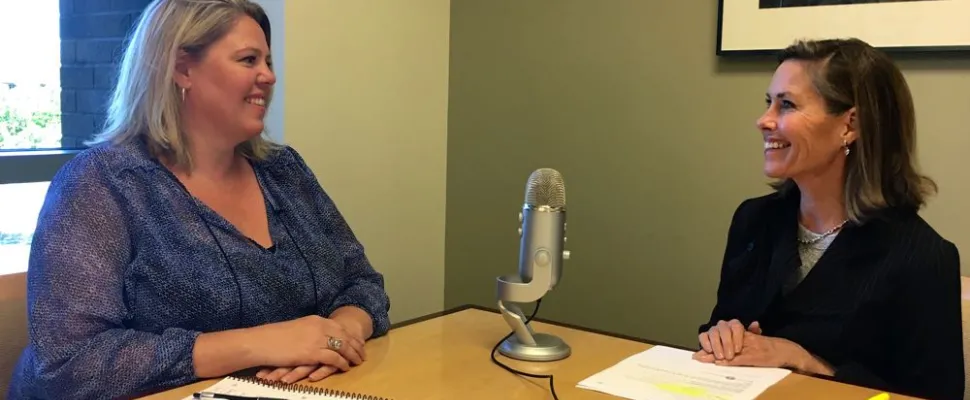
How Do 1031 Exchanges Work?
Karen Malanga: Hi This is Karen Malanga with another edition of House Talk.
I’m so pleased to welcome Danielle Brock today. She is an exchange officer with 1031 Corp here in Bend. Today, she’s going to speak to us about, obviously, 1031 exchanges.
Thanks for coming, Danielle.
Danielle Brock: Thanks for having me, Karen.
1031 exchange is a section of the IRS tax code that provides that an investor can exchange property that’s been held for productive use in their trade or business so long as they comply with the rules and regulations of the tax code itself.
And the role that I play is as a qualified intermediary. You’re required to have an intermediary to prepare the required documentation and to hold the exchange proceeds during the period of the exchange. The exchanger may not ever have control or constructive receipt of those funds. So that’s a major role that we play in the process.
Karen: I know as a real estate broker looking at it from my seller’s side, a lot of times, they don’t understand that their proceeds are going directly into an account that’s managed by 1031 Corp when they close on the transaction before their purchase that the funds are going into occurs, and that closing happens. So sometimes, they’re like, “Well, wait. Do we get the money?” and I’m always like, “No, you don’t get the money.”
Danielle: That’s correct. That does happen. In fact, on Monday, I got a phone call from a from an escrow officer that was sitting at the closing table. Her client intended to do an exchange, but he didn’t realize that he couldn’t just take the money and then go find a new property. So, he called us up and said, “We have to close today. Can you make that happen?”
Karen: And could you?
Danielle: We did, we did. We always try to accommodate that. In fact, I can’t think of an instance where we haven’t been able to. But we certainly want as much lead time as possible.
Karen: Well, normally, when we refer people to you, I think what we’ve been doing is right when we list their property, we’ve been connecting them with you. And that gives you plenty of time.
Danielle: Exactly! Part of my job is really to make sure that the client understands all the in’s and out’s. There are a lot of small nuances. And we don’t want anything to come back and bite us later.
And so, the more time that I have to interview the client to really understand their goals and all of the nuances of their transaction, then I can kind of guide them in that way. And when we’re doing that on a real short turnaround, I just don’t always feel confident that we’ve had a chance to touch on all of that.
Karen: Do you ever run into clients asking you or thinking that they’re avoiding taxes? What they really are doing is deferring taxes.
Danielle: That’s absolutely correct. The 1031 exchange allows you to defer. So any capital gain that you have in the property that you are relinquishing or selling rolls over, if you will, to the new property. The depreciation schedule that you’ve been carrying on the old property rolls over to the new property, and so then, when you sell that property, you’ll be faced again with the decision to either do another exchange and continue to defer taxes or to finally pay the tax.
Ultimately, if an exchanger holds a property at the time of their death, there is what we call a step-up in basis. And what that means is the inheritance inherit the property at the fair market value at the time of death. So, in that case, the taxes do go away.
Karen: Oh, I never knew that.
Danielle: Yeah!
Karen: So, it really is a benefit especially if someone has a revokable trust set up or something, and they have one of these properties in that trust, and they’re just keeping it as something for their family to inherit.
Danielle: Correct, yes.
Karen: I did not know that, Danielle. That’s amazing!
Well, thank you so much for being here today. How does someone reach you and get information from you? What’s the best way?
Danielle: The best way is by phone. We do consultations free of charge either on the phone or in the office. Our number is 541-388-1031.
Karen: That should be easy to remember. Thank you so much.
Danielle: Thank you.
https://media.blubrry.com/house_talk_bend_oregon_real/p/nestbendrealestate.com/wp-content/uploads/2017/06/Danielle-Brock-Episode-1-1031-Edited.mp3Podcast: Play in new window | Download
Subscribe: Apple Podcasts | RSS
